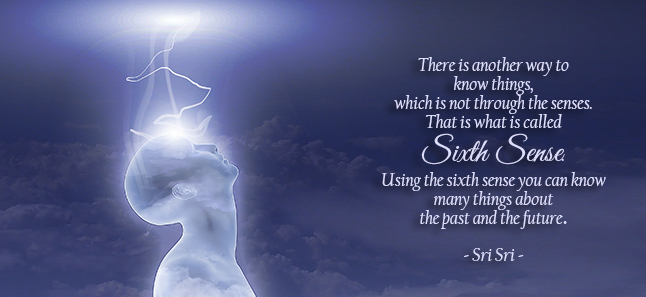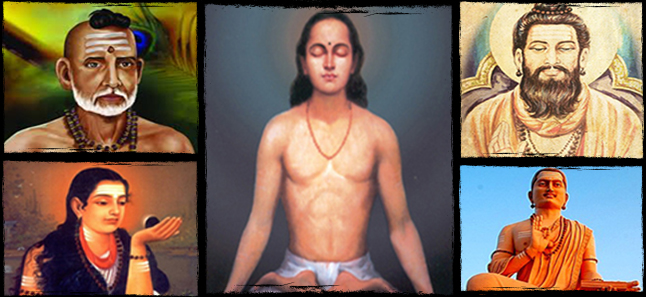Thu, 10/29/2015 Bangalore, India
(A a group of singers from Tamil Nadu joined the satsang, and recited ancient poems in Tamil written by a renowned saint Manikkavachakar.)

The group that has come here today from Tamil Nadu belongs to one of the 63 saints of Tamil Nadu. There were 63 Shaiva saints (saints who worship Shiva) in Tamil Nadu. The 3rd one is called Manikkavachakar. It means that his words are like pearl of wisdom. They are like diamonds and rubies. Whenever he would talk or speak something, it would be so clear that it would be like diamonds and rubies.
In this song, he has done a beautiful analysis of life. He says that how god is playing is like a girl playing skipping rope. When you are playing with a skipping rope, you jump so that you do not step on the rope. So the same skill with which you jump when you are skipping, is what you need to use to face all different issues in life. Skip them all to reach to the divine.
He also says that Lord Shiva opened his third eye and burned three cities. What are these three cities?
1, Karma or the past impressions
2. Ego
3. Delusion
These are the three cities in which a human being gets trapped and goes round and round in it. To get out of it, to find freedom, to attain liberation, you need God’s grace. That’s why he says, play with each event like how you play with a skipping rope. The problems are like the rope, but you need to be alert enough to jump over it. .And when you jump over the problems in life then you find the grace, and you realize that it has always been with you. This is what the song means.
1, Karma or the past impressions
2. Ego
3. Delusion
These are the three cities in which a human being gets trapped and goes round and round in it. To get out of it, to find freedom, to attain liberation, you need God’s grace. That’s why he says, play with each event like how you play with a skipping rope. The problems are like the rope, but you need to be alert enough to jump over it. .And when you jump over the problems in life then you find the grace, and you realize that it has always been with you. This is what the song means.
There is another meaning to this poem. The three cities are the waking, dreaming and sleeping states. When grace dawns, when the divine comes into your life, then you reach the fourth state of consciousness, which is Shiva itself. That is "Turiya" state or the meditative state. And that is what you are doing when you are meditating. You are neither awake, nor sleeping, nor dreaming because you go beyond the three states.
Manikkavachakar has written this poem 2,000 years old. There is a small group of people that are preserving these ancient versus from the saints. I asked them to come here. We can sit and talk about these poems for hours and hours and forget about everything else. So In India, every corner, there are many devotees. So many saints have sung beautiful poems.
We have Jnanappana (a devotional poem written as a devotional prayer) by Poonthanam (a famous devotee of Guruvayurappan who lived in Kerela). Then here in Karnataka we haveVachanaas of Basavanna (a 12th century Indian philosopher who wrote devotional poetry popularly known as Vacahanaas). Then we have the Vachanaas of Allama Prabhu (a 12th-century mystic-saint and Vachaana* poet). Then we have Akka Mahadevi who was a lady saint who wrote beautiful versus (her two short writings called Mantrogopya and the Yogangatrividhiare considered her most notable contributions to Kannada literature). In Maharashtra we have Sant Dnyaneshwar ( a 13th-century Marathi saint, poet, philosopher and yogi of the Nath tradition whose commentary on the Bhagavad Gita (Dnyaneshvari) and Amrutanubhav are considered to be milestones in Marathi literature.)
Almost every province of India has great spiritual awakening. There were saints in many provinces and they wrote so many poems and such versus. So India is a land of saints, philosophy and knowledge.
Almost every province of India has great spiritual awakening. There were saints in many provinces and they wrote so many poems and such versus. So India is a land of saints, philosophy and knowledge.
* Vachaana sahitya is a form of rhythmic writing in Kannada. The word vachaanas literally means "(that which is) said".

(Left top: Sant Poonthanam. Left below: Sant Akka Mahadevi. Center: Sant Dnyaneshwar. Right top: Sant Allama Prabhu. Right below: Sant Basavanna)
We were studying about the Vaisheshika Darshana (one of the six orthodox schools of Hinduism from ancient India). Could you speak on how the ancient saints knew so much scientific knowledge without any instruments like a microscope?
Sri Sri Ravi Shankar:
I think it is mind boggling.
This morning I was reading a book by a scientist who has written about the physics in the Vaisheshika Darshan. I just read a couple of sutras and thought, this is mind boggling.
The Rishis in the ancient days (which is some 10,000 years ago) have described the atom. They have described that how if one atom is destroyed, it destroys many other atoms. They have explained the connection and movement of atoms, and how the knowledge of one atom alone is so liberating.
This only indicates that there is another way to know things, which is not through the senses. There is what is called the sixth sense. Using the sixth sense, you can know many things about the past and the future.
This morning I was reading a book by a scientist who has written about the physics in the Vaisheshika Darshan. I just read a couple of sutras and thought, this is mind boggling.
The Rishis in the ancient days (which is some 10,000 years ago) have described the atom. They have described that how if one atom is destroyed, it destroys many other atoms. They have explained the connection and movement of atoms, and how the knowledge of one atom alone is so liberating.
This only indicates that there is another way to know things, which is not through the senses. There is what is called the sixth sense. Using the sixth sense, you can know many things about the past and the future.
In The Art of Living, we have developed a program for the kids to open up their sixth sense. Adults can also do this course, but for them it will take a longer time. For children, it only take a few hours or weeks to develop this. They will be able to read with their eyes closed. You know, some children even told me what I am going to say at satsang the following evening. So their ability to access the sixth sense is developing very fast. I’m sure this is what the ancient Rishi’s had; very strong intuitive abilities.
If you go to the Thanjavur temple which is in Tamil Nadu which was built 1000 years ago, you can see they have carved a picture of a British man with hat and a gun. A thousand years ago there were no British people in India, and there were no guns, but they had foreseen that the British would come and rule over this place. And so they made a carving of a British soldier with a hat and a gun. So, this is possible because of their intuitive ability or the sixth sense which all of us have used at some point of time. It has to be methodically accessed through Meditation.
No comments:
Post a Comment